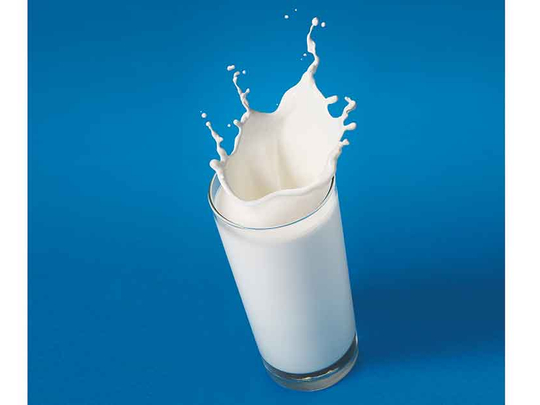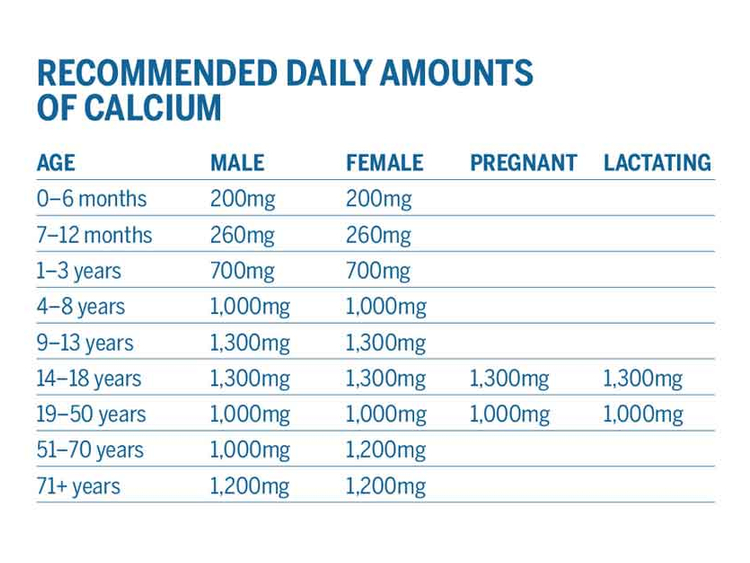
With alarming levels of vitamin D deficiency in the UAE, the next logical question is whether the population gets sufficient calcium, given the link between the need for vitamin D to help calcium absorption.
Dr Michael Holick, an expert on vitamin D and Director of the Bone Health Care Clinic and the Heliotherapy, Light and Skin Research Centre at Boston University Medical Centre, says populations with vitamin D deficiency are at a high risk of developing calcium deficiency.
“Almost 90 per cent of the UAE’s population has either vitamin D deficiency or insufficiency, which means the level of calcium absorbed by the body will be poor,” he says. “Vitamin D first goes to your body and is activated and the active form helps increase the absorption of calcium. So the two-step approach is to firstly take steps to increase your vitamin D levels and secondly to consume sufficient calcium.”
Dr Holick also emphasises the importance of calcium for adolescents. “This is particularly important for teenagers,” he says. “Teenagers need calcium and 50 per cent of the calcium in our body is generated in the teenage years. The Institute of Medicine says teenagers can require up to 1,300 milligrams a day. An 8-ounce glass of milk contains 300 milligrams, so three to four glasses of milk per day is an ideal source of calcium and for children, two to three glasses per day should be sufficient.”
Calcium deficiency can be an issue for grown-ups too. “Even adults need to sustain their calcium absorption,” says Dr Holick. “The amount of calcium in your bones reaches maximum levels by the age of 30 but it does not mean you do not need any more calcium.”
The Institute of Medicine recommends 1,000 milligrams a day for adults and if you are over 50, then it’s 1,200 milligrams per day. If you do not consume calcium, your body will use calcium stored in your bones and you will lose bone density.
Dairy products, the primary source of calcium for many, have of late faced criticism and many experts do not think they are healthy. Such conflicting perspectives lead to confusion. “It turns out that most of that information, in my opinion, is incorrect,” says Dr Holick.
“Dairy does not increase diabetes and it does not alter your health. Milk is a very good source of whey protein. It alkalinises your body just like a plant diet and it gives you a good source of calcium. With all my patients that I see at the clinic, I advise them to be on three servings of dairy per day, which can be yogurt, milk and cheese.”
The vegan dilemma
But what about vegans? Veganism is often a lifestyle choice and it can lead to calcium deficiency.
“A cup of broccoli has 100 milligrams and a cup of kale has 100 milligrams. You cannot get any calcium by eating spinach because of the oxalate in spinach, which irreversibly binds calcium and increases the risk of kidney stones. So for vegans it’s not ideal to have calcium tablets but it’s OK because they need to keep their calcium levels up.”
However, Dr Holick believes the best source of calcium is dairy, though the quality of milk is in question in today’s times. Yet, if it doesn’t contain antibiotics, Dr Holick sees no reason for not consuming milk.
“For the most part, dairies in the United States at least, most of them are not using antibiotics and none of them are using hormones. Hormones are no longer being used because of concerns of cancer.”
Stephanie Karl, nutritionist in Dubai, says, “Dairy is a fantastic food group if you are able to digest and absorb it. I think it is the go-to food group for a number of reasons.
Dairy intolerance
Not everyone is able to consume dairy products though, explains Karl. “Some ethnic groups cannot tolerate some of these fragments of milk due to their genetics. In the Mediterranean, Middle East and Asia, where milk cannot be stored for long, it quickly converted to curd, which is low in lactose. Their genetics adapted to stop producing lactase, the digestive enzyme that breaks down lactose and this is probably why so many people are lactose intolerant but can consume curd and cheese.
“In colder regions of the world, people have a higher tolerance to milk and that is because it stayed around for longer especially in the winter months. There is less dairy intolerance in these areas.”
Karl believes you should consume it unless you have a valid reason. “I recommend anyone with hormone issues such as PCOS and acne to go completely dairy-free to see if it reduces testosterone,” she says. “Anyone who has tested positive to lactose intolerance through IgG or allergy IgE should go dairy-free.
"I recommend children in autism spectrum to go dairy-free because 90 per cent have high intestinal yeast and a compromised digestive system. If the gut lining is letting dairy proteins into the system, it can have a disruptive effect on behaviour and anxiety.”
If you do suffer from a calcium deficiency, then you may be required to have your bones screened to assess them for any damage. “Bone density tests can be done and if the results are normal, the test can be repeated after two to four years,” says Dr Holick. “If it is abnormal, in a year or two it should be redone and if the person is still losing bone density, then interventional strategies need to be adopted.”
Yet in most cases, medication is not required. “For most of my patients, I don’t put them on a bone active medication,” he says.
Instead, if the patients are over the age of 50, Dr Holick will prescribe 3,000-4,000 units of vitamin D supplements a day, 1,000 milligrams of calcium, preferably from dairy, and he advises them to walk three to five miles a week.
Aside from the numerous benefits of exercise, which range from improved cardiovascular health to heightened mental well-being, walking can improve bone health.
“The pounding from walking on the pavement helps to maintain bone density of the hip and spine and also improves muscle function so that elders are less likely to fall and less likely to have fractures,” he says.
Alternative sources of calcium for vegans
Calcium supplementation after seeking medical advice is important. Ensuring sufficient vitamin D levels is vital for calcium absorption. Calcium is available in some vegetables such as celery, squash, broccoli and kale, nuts and seeds, chickpeas and beans, and a little in figs and orange.











